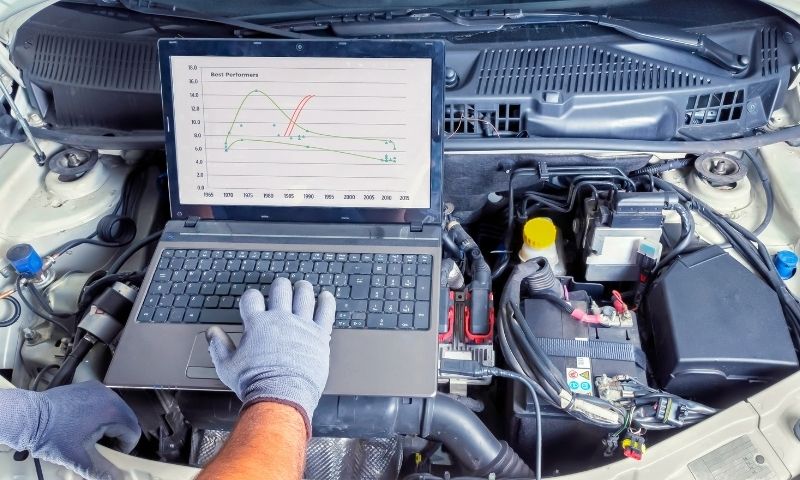A Leading Resource Built By Automotive Lovers, For Automotive Lovers.
We’ve helped consumers around the world make their purchasing decisions.
Latest Articles
A bad rectifier can indeed drain a motorcycle battery. It fails to charge the battery properly, impacting electrical components. Common symptoms include dim lights and a dead battery. If not… A Bluetooth FM transmitter can draw current from your car battery. If it stays plugged into the cigarette lighter when the ignition is off, it may drain the battery. Unplug… A faulty instrument cluster can drain your battery due to parasitic drain. This happens when the cluster uses power unnecessarily. To troubleshoot, remove the cluster and check for loose or… Yes, a bad battery can drain itself. Causes include a faulty battery, a short circuit, or leaving a light on. A faulty diode may also cause overnight discharge. It’s important… A 12v fan can drain your car battery if it runs without the engine. The battery capacity determines how long it lasts before draining. The fan uses power from the… A 12V fridge can drain your car battery if used continuously without precautions. To avoid battery drainage, regularly check the battery voltage. Start the engine every few hours to recharge…. Using 12V accessories can drain a car battery, especially without the engine running. The car’s alternator recharges the battery when the engine is on. A typical car battery has about… A 1000 watt amp can drain a car battery, especially at high volume and when the engine is switched off. The drain depends on battery health and quality, as well… If your iPhone won’t charge after the battery drained completely, follow these steps: 1. Check the charging cable for any damage. 2. Clean the charging port to remove any dust…. A new car battery can drain for several reasons. Common causes include parasitic drain, which occurs when electrical devices stay on with the ignition off. Other factors are extreme temperatures,… The right AirPod battery drains faster because it often uses its microphone more than the left one. When you use just one earbud, the active microphone consumes more power. If… Remote batteries drain quickly for several reasons. A malfunctioning button or a stuck key may cause the remote to send continuous signals. Also, poor-quality or expired batteries can lead to… Battery drain on your Pixel 6a can happen due to software updates, such as the June 2024 update. Adaptive connectivity and background apps can worsen the problem. To save battery,… Tesla battery drains quickly for several reasons. Phantom drain, high-speed driving, and climate control usage can contribute to the loss. Additionally, low tire pressure, battery degradation, and weather conditions play… A new battery may drain quickly because it goes through an adjustment period. During this time, the operating system collects data on your usage and charging patterns. This information helps… Your Galaxy S8 battery may drain fast due to several reasons. Check AccuBattery for battery health. Rogue apps, location services, and system data can cause excessive battery drain. High screen… Your Samsung Galaxy S21 may drain its battery quickly due to background apps or recent software updates. High refresh rates (120Hz) use more power; lower it to 60Hz in Settings… If your S7 battery drains quickly, check for battery-hungry apps. Go to Settings, select Battery, and review Battery usage. Identify apps consuming too much power and limit their background activity…. If your iPhone battery drains fast without use, Background App Refresh might be the cause. This feature allows apps to run in the background, using battery power. To maximize battery… Your MacBook battery may drain quickly due to background apps, energy-intensive processes, high screen brightness, or outdated software. To improve battery life, close unused apps, lower brightness, update your macOS,… iPad battery drains quickly due to background app refresh, high screen brightness, outdated software, or location services like GPS. To reduce drain, enable Low Power Mode, limit background app activity,… Your Bluetooth earphone battery may drain fast due to continuous use or charging issues. If you use a new headset, ensure it’s fully charged before use. Develop good usage habits… Phone battery drains while charging for several reasons. Excessive usage, enabled features, outdated software, faulty batteries, or damaged charging ports can all cause this issue. Identifying these factors allows users… Your MacBook battery may drain fast due to background processes, high screen brightness, and outdated software. Use Activity Monitor to find energy-intensive apps. Adjust system settings and unplug unnecessary accessories…. Battery drain on your tablet happens for several reasons. Running multiple apps or background processes increases power consumption. High screen brightness also uses more battery. Active Wi-Fi, Bluetooth, and location… After the iOS 18 update, battery drain can happen for iPhone 15 users. This is due to background tasks and data reindexing. To improve battery life, limit background app refresh,… If your MacBook battery drains quickly, check your battery health and optimize settings. Use Low Power Mode and quit unused apps. Look for energy-intensive processes in Activity Monitor’s Energy tab…. Laptop batteries drain fast for several reasons: background applications, high screen brightness, incorrect power settings, aging batteries, and hardware issues. To fix this, adjust your power settings, lower screen brightness,… Your MacBook battery may drain quickly due to background processes, high screen brightness, outdated software updates, or poor battery health. To improve battery life, quit unused apps, disconnect accessories, and… The battery on your Apple Watch drains fast because of background apps using power. Common culprits include background app refresh and running apps you don’t use. To reduce battery usage,…Will a Bad Rectifier Drain Your Battery? Symptoms and Troubleshooting Tips Explained
Will a Bluetooth FM Transmitter Drain Your Car Battery When Plugged Into the Cigarette Lighter?
Will a Bad Instrument Cluster Drain Battery? Symptoms, Causes, and Solutions
Will a Bad Battery Drain Itself? Causes, Prevention Tips, and Parasitic Draw Insights
Will a 12V Fan Drain My Car Battery? Power Consumption and Duration Explained
Will a 12V Fridge Drain My Car Battery? Tips for Safe Usage and Avoiding Battery Drain
Will a 12V Charger Drain My Car Battery Overnight? Myths, Facts, and Protection Tips
Will a 1000 Watt Amp Drain Your Battery? Power Consumption and Car Audio Effects
iPhone Won’t Charge After Battery Drained Completely: Troubleshooting Tips to Fix It
Why Would a New Car Battery Drain Overnight? Causes and Ways to Prevent It
Why Right AirPod Battery Drains Faster: Causes, Solutions, and Fixes Explained
Why Remote Battery Drains Fast: Causes, Solutions, and Tips to Fix It
Why Is Your Pixel 6a Battery Draining Fast? Causes, Solutions, and Fixes Explained
Why My Tesla Battery Drains So Fast: Common Causes and How to Stop It
Why New Battery Drains Fast: Causes, Tips, and Effective Fix Solutions
Why My S8 Battery Drains So Fast: Common Issues and Effective Fixes for Battery Life
Why My S21 Battery Drains Fast: Quick Fixes and Troubleshooting Tips
Why My S7 Battery Drains So Fast: Tips to Fix Sudden and Idle Battery Drain
iPhone Battery Drain: Causes and Quick Fixes for Fast Draining When Not in Use
Why My MacBook Battery Drains So Fast: Common Causes and Quick Fixes
iPad Battery Draining Fast? 10 Simple Fixes and Troubleshooting Tips to Try!
Why My Bluetooth Earphone Battery is Draining Fast: Quick Fixes and Troubleshooting Tips
Why My Battery Drains While Charging: Causes, Fixes, and Troubleshooting Tips
Why MacBook Battery Drains Fast: Causes, Quick Fixes, and Troubleshooting Tips
Tablet Battery Draining Fast? Discover Causes and How to Fix It Now!
Why Is the New Update Draining My Battery? Causes, Tips, and Easy Fixes
Why Is the Battery on My MacBook Draining So Fast? Causes, Tips, and Quick Fixes
Why Is the Battery on My Laptop Draining So Fast? Quick Fixes and Proven Causes
Why Is the Battery on My Mac Draining So Fast? Tips and Solutions for Fixes
iWatch Battery Draining Fast? Quick Tips to Fix and Extend Battery Life



